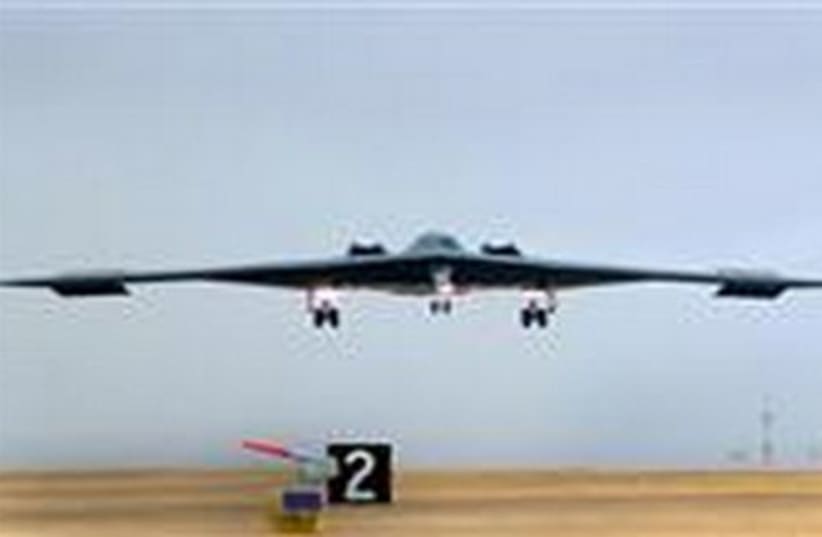$20 billion Defense Minister Ehud Barak’s political tin ear was on display again in a Wall Street Journal interview on March 7, when he suggested that the US “invest another $20 billion to upgrade the security of Israel.”That’s a polite way of asking for more handouts. Barak admitted it would be unrealistic to raise the issue without making a “daring” peace offer. But that’s the least of it.Barak appears to remain mesmerized by America, and the fact is its power is still unrivaled. But the trend line is heading south. One example of that is America’s fiscal house, which is in serious disorder.Israel is already getting $3 billion annually, a testament to the affinity Congress has for it. The polls show it also has broad support among American voters. But that support is shallow: Whether it’s dogcatcher or president, almost no one chooses a candidate based on his or her stance on Israel. The country is popular for most politicians because it’s benign – there’s no large anti-Israel constituency that is alienated by supporting the Jewish state. Compare that to, say health reform, an issue that does sway votes. But the once bottomless US wallet is no more and stark choices are ahead for Washington. Aid to Israel will be harder to defend, impossible to expand. In fact, this country has long been rich enough to pay its own arms bills and would do well to wean itself off the largesse now rather than fight a losing battle.
The no-fly zone Did anyone ask Israel’s help in restraining Muammar Gaddafi? No, it’s America and Europe flying the sorties.When Bahrain heated up, did the IDF send troops? No, in that case it was the Saudis. Was Israel able to influence developments in Egypt or Jordan? Of course not. In fact, it found itself at odds with America over Egypt.There was a time when the US was engaged in a Cold War and military intervention in other countries wasn’t so controversial.Israel whupped Soviet-armed foes in wars, helped save King Hussein during Black September and knocked out Iraq’s nuclear reactor. Barak believes that it remains no less an asset today. “A strong, responsible Israel can become a stabilizer in such a turbulent region,” he informed the Journal.That is a dangerous illusion. Iran has to some extent replaced the old Soviet Union as the chief rival for influence in the region, but Iran, through its proxies Hezbollah and Hamas, hasn’t allowed for the kind of stunning victories that enabled Israel to shift the balance of power. Israel can no longer march into Lebanon or Jordan to set things right. It certainly can’t intervene in the Gulf, where the stakes are highest of all for America. Instead, it has grown worryingly dependent on the US for diplomatic cover, and for arms and technology.
Egyptian gas Deliveries of natural gas from Egypt were halted in early February and the flow has only gradually resumed after many weeks of repeated delays. It is almost certainly a sign of things to come, but evidence suggests it wasn’t a conspiracy of anti-Israel terrorists and the government. Terrorists blew up the pipeline, but the delays in reopening it were most likely a product of the chaos that has enveloped Egypt in the last few weeks – not evidence of a new, hostile stance toward Israel.Whether Egypt becomes democratic or Islamist or reverts to its old autocracy, no one can say yet, but it will certainly become more inner directed as it struggles to restore order and deal with a stricken economy. Tapped-out oil and gas resources and political pressure to retain the subsidies on energy that encourage waste mean that Cairo’s new leaders will give priority to Egypt’s own energy needs. Israel can manage without Egyptian gas, but Cairo’s preoccupation with domestic politics and the likelihood that any kind of new government will be less Israel-friendly means it will no longer have a partner in combating Iran and Hamas. Ditto for Jordan.Itamar killings The speed with which Prime Minister Binyamin Netanyahu rushed to blame the murder on Palestinian incitement is alone grounds for suspicion. But there are plenty of other good reasons to reject the incitement claims. The most obvious one is if there is so much incitement by the Palestinian Authority, why is there so little terrorism? In the past year, there have been six attacks perpetrated by people under PA rule, two of them by the same gang. If this is incitement, someone should fire the PA’s minister of education. It’s not working. Abbas condemned the killings, which is certainly far more important a message to the Palestinian people than naming a square after Dalal Mughrabi.THE REAL story is that the PA is finally building a real state. Salam Fayyad has a long way to go and there are certainly many in Fatah who oppose him. But the relative quiet of the West Bank is testament to which side is winning.Of course, if Netanyahu has no intention of negotiating, he needs to deny this and continue the line that all Palestinians, whether it’s Hamas or the PA, are unsuitable partners. His rush to blame is a sign of desperation in the face of an untenable policy of pretending he wants talks while doing everything he can to ensure they don’t happen.The ground is shifting in the Middle East. It’s a pity that Israel’s current leadership has its feet set firmly in the past.
The writer is executive business editor at The Media Line. His book Israel: The Knowledge Economy and Its Costs will be published by Palgrave Macmillan in 2012.
